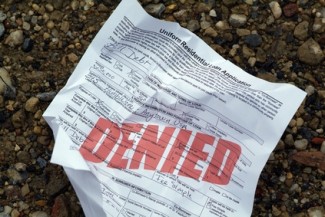I am excited to announce guest blogger Michael Dunsky from Guaranteed Rate Mortgages who will be covering some of the great benefits to FHA financing. Michael has been one of my preferred loan officers for years and always does an outstanding job with his clients. Check out Mike’s terrific article on FHA Loans v.s conventional loan products.
You’ve heard the term FHA but probably don’t really understand how vital this loan is in today’s real estate market. Just what makes FHA so important?
FHA is the single most versatile loan program available and without it, literally hundreds of thousands of potential borrowers would not be able to finance a home.
Compared to all other home loan options, FHA is the second most utilized loan and is, by far, the most flexible in many areas such as credit, down payment, reserves after closing, etc. In many cases FHA is not only a great loan option but it’s the ONLY loan option available.
Take a closer look at FHA’s flexibility- down payment for example; FHA
only requires 3.5% down payment while a conventional loan requires a
minimum of 5% down.
On the surface it doesn’t seem like much but let’s put this in perspective. Given a purchase price of $275,000 FHA would require $4,125 less down than that of a conventional loan (if you’re not quite convinced that is meaningful then just think how long it would take you to save another $4,000).
How about credit scores? This is a big topic these days and rightfully so. If your credit score is 680 (and this is not considered “good” by today’s mortgage standards) and you were applying for a conventional loan with only minimal down payment then your interest rate could be as much as .375% higher than that of a FHA loan. Why? Because conventional loans charge higher rates for lower credit scores. FHA does not. We examined both options with a recent client and the payment on the FHA loan was $57 per month lower. Over 30 years that $57 per month adds up to over $20,000… now that’s real money!
One obstacle that borrowers can be challenged on is the source of their down payment. This can be critical to your loan approval.
A conventional loan requires the borrower to verify that they have at least 5% of their own funds while FHA does not. FHA allows for the entire down payment to be a gift.
A great example of this is a client who just closed on her home. She is a recently divorced mother of two and wanted to buy a home for her and her children. After selling the marital home she had very little equity left over. Fortunately, her parents provided her with a gift for the down payment and she was able to negotiate the seller to pay her closing costs. Because she went through FHA she was able to buy this home with no money of her own. On a conventional loan she would not have been able to purchase a home at this time because she lacked the 5% of her own money. Please don’t misunderstand the intent of this guideline. A financially healthy borrower should have some form of savings but under FHA rules it is not a requirement.
One other advantage of FHA is in regards to mortgage insurance. This is insurance that is required by bank when you’re putting less than 20% down payment.
FHA has their own insurance built into the approval process but this is not the same with a conventional loan. On a conventional loan there is an entirely separate approval process for private mortgage insurance (PMI) and often these guidelines can be more rigid than the bank’s. So keep in mind that just because your bank approves your mortgage doesn’t mean you’ll be able to get that loan if you don’t meet the criteria of the PMI company. Under FHA, one set of guidelines and that’s it.
Regarding private mortgage insurance, a great example of FHA’s flexibility is when you’re purchasing a condominium. If you’re buying a condominium with a credit score under 680 and you are only putting 5% down then you won’t be able to obtain private mortgage insurance. The private mortgage insurance guidelines prohibit this at this time and, therefore, you won’t get the loan regardless of whether your bank approves you! This is not the case with FHA. FHA does not differentiate with separate guidelines. You either qualify for a FHA loan or you don’t. There is no other criterion that has to be met.
The benefits of FHA’s flexibility far outweigh any disadvantages. In recent years there has been some confusion in the real estate market about FHA loans and much apprehension among a few real estate agents who believe that FHA is a harder loan to get approved. They feel that FHA is too rigid with appraisals with respect to the condition of the properties. There was some truth to that statement in that several years ago FHA was more restrictive on appraisals but that has since eased significantly. Today, FHA appraisals are no more restrictive than that of a conventional appraisal.
It’s estimated that there are approximately 14 million potential first time buyers between 25 and 37 years old who are ready to purchase a home. You have to imagine that many of these people will qualify for a conventional loan… but many won’t.
They’ll have circumstances that prevent them from being approved or have financial profiles that make FHA a much better financing alternative. With that said, FHA definitely has its place in this real estate market and is certainly here to stay.
If you are looking for a mortgage and want to work with someone that is very knowledgeable, has great service skills and competitive rates, I would give Mike a call!
Michael Dunsky can be reached at Guaranteed Rate, Inc which is located at 38 Pond Street, Suite 208 Franklin, MA 02038
Phone 508.528.1800












Bill – Mike does an awesome job in this article explaining some of the differences between an FHA loan and conventional loans! I have been reading your Massachusetts Real Estate blog for a while and you provide great information.
Planning to refinance house i bought last year under FHA at 4.5%; now i am planning to re-finance … which one is better Conventional or FHA loan.. Please advice …
thank you
Vinod – The question you are asking without knowing your exact financial situation would be hard to answer. Things like your credit score for example would come into play. I would recommend speaking with a mortgage professional to outline the advantages of conventional vs FHA financing based on your financial position.
Are some houses not permitted to be purchased via an FHA loan? Are there certain requirements that a house must meet before it’s eligible? We found a house that we like and can afford based on our pre-qualification for an FHA loan, but the description lists only cash and conventional loans as the terms. We’re not sure what to do next. Any help would be appreciated.
Hi Jen – Yes there are requirements with an FHA loan which is one of the few downsides. In order to finance with FHA the property must meet minimum standards. If the home is in really tough shape it probably will not pass FHA standards. With an FHA loan you would need to bring the home into compliance. Even little things like peeling paint need to be remedied.
Article does not mention that a buyer cannot get out of the monthly FHA insurance premiums until five years into the mortgage and reaching 22% of the original principal loan. That 22% threshold can’t be reached with an appraisal that shows appreciation of the house — it can only be reached through actual paying down the principal. So, it most cases with folks who are in the position to need to take out an FHA loan in the first place, they aren’t going to have the ability to reach that 22% threshold within five years…it may take several years more. Buyers could be on the hook for a mortgage premium payment (now .9% of loan) that lasts a long time and undermines their return on investment significantly. Plus, there is a 1% upfront fee (albeit rolled into the mortgage loan) with FHA loans, which isn’t required with a conventional loan. If you can scrape the extra cash, it makes more sense to do a 5% conventional if you have the higher credit scores — conventional insurance premimums are lower, there are no upfront costs, and you can re-finance (using an appraisal!) after only two years.
Bill.. good article here.. and Mike did a good job. I think showing examples also help, which I do in most of my comparisons.
@ Tom Y – I think you need to go back and read this article again. You must then define good credit scores. You stated this…
“If you can scrape the extra cash, it makes more sense to do a 5% conventional if you have the higher credit scores ”
Easier said then done… let me point out a few facts and opinions.. first off, higher credit scores. Do you know that there are pricing penalties on conventional mortgages, even at a 720 credit score. Once you go below 700 with 5% down, it’s very hard to get conventional PMI and if you do, it’s very expensive and reserved on different types of properties. On another note.. so what you are saying is that if I have an extra 1.5%, to go with a conventional loan. But what if I now have no money left over? I would rather keep reserves in my pocket. Why do you think we have many foreclosures, besides the fact that many lost jobs or income. Because many got into the house and had no money left over.
You then stated this….
“conventional insurance premimums are lower, there are no upfront costs, and you can re-finance (using an appraisal!) after only two years.”
Conventional premiums are lower with 5% down? Do you actually know these figures? In most cases, it will be the same or higher on a conventional loan with 5% down. And just for the fact as I mentioned above, it’s harder to obtain a mortgage with PMI if your credit scores are under 700… and almost impossible if under 680.
You talk about refinancing in a few years using an appraisal. I am lost, you could refinance in 6 months on a FHA loan or a conventional loan. For property values, if you bought a property with equity or your equity position increases, it’s 1 year. But if you are talking about just getting a new appraisal to show value to knock off your PMI, okay. But it’s not considered a refinance. but since we are on this topic.. do you know that the PMI company can say no for several reasons? hhhmmmm.. Yes, this can happen. Just food for thought. thanks, jeff
.
Thanks for stopping in and adding your comments Jeff! If anyone knows the ins and outs of the FHA program I know you do.
Is it true that if you are self-employed that your taxes from the previous year have to be filed and paid before you are approved for a FHA loan? That is the situation we are running into now. It could cost us our dream home. We don’t have enough at (within the next 30 days) to pay for both the down payment and 10,000 owed in taxes.
Hi Zack – You are supposed to file for your taxes but this in not specific to FHA. This would be the case for any type of loan.
Hi CSG- You have to have your income taxes filed or proof of extension for FHA loans. With respect to any monies owed the IRS, as long as you are on a payment plan with them then you cannot be forced to accelorate those payments and in most cases, this should not disrupt your financing. If you want to discuss your specific concerns directly then I’m happy to look into this with you. 508.528.1800 x1. Some lenders can be very cautious in this lending environment and are more conservative with their interpretation of the guidelines. You might be ok but can’t know for sure until I have the specefics of your situation. Would welcome your call~
I have a couple (759 & 802 FICO’s) buying my condo with 10% down closing April 29. Are they better off with conventional or FHA (condo is FHA approved) loan?
Dave the decision on whether a buyer would choose FHA or a conventional loan comes down to a lot of different variables that are unique to each borrower. The big advantage with FHA is the ability to only have to put 3.5% down. Your question is difficult to answer without knowing all the borrowers needs and wants.
I thought perhaps they could get a better APY with FHA. With 10% down they clearly don’t need FHA and can qualify for Fannie Mae but Fannie Mae has so many new fees for those with less than 25% down, even if they have excellent credit and PITI numbers. I though perhaps FHA might be offer a lower APY.
HI am confused i recently have a shortsale approved, but my real state agent tells me i have to go with a conventional loan because we need to closed by the 06/24 /11 I want to go FHA because a don’t have to proved that i have that amount of money in the bank.
she says if we don’t go conventional the loan wont closed in time, putting the home a risk of not closing , and going back to the back and will need to start all over again. It’s that true?
Eddy the 1st question that comes to mind is how does the Realtor know this is the case? Why don’t you speak with whoever is doing the loan for you and ask them. FHA loans usually do not take that much longer than conventional loans.
This is a good article, and for a first time home-buyer I sure learned a lot about FHA loans. I was disappointed though, I read the title “FHA vs Conventional” believing I would see the pros and cons between the two, when in fact I learned all the “pros” about FHA and barely anything about Conventional loans. This article is selling FHA loans, whether it be good or bad, but it does NOT compare the two very well. Thank you though, for the information! I’m going to go check out information on conventional loans now… 🙂
I am about to buy a house in MD from 300K but if I put down 20% not to pay PMI I will be short in cash flow. I was hoping to get FHA or conventional loan with 10% down what is the advantages or disadvantage
I have a rental property on my name and has been rented out since January of 2010. This rental property is financed with FHA loan. I have been living with my brother since 2010 and splitting the mortgage. Now i am ready to buy my own house. My budget is $200,000 and i have 5%-7% down available. I think one can not have two FHA loans at one time so the only option that is open to me is to get a conventional loan. Since the new property will be my primary residence, will be i qualify for a conventional loan with the 5% down? My current debt to income ration is less than 10% and FICO is 690. Can someone give me a professional opinion on what options do i have open to me. Any input will be highly appreciated. Thanks.
Hi Aiqbal – In order to know what your mortgage qualifications are you should speak to a mortgage broker. I would recommend speaking to Mike Dunsky at Guaranteed Rate Mortgage. You can reach Mike at 508-245-0705.
Hi, I was recently approved for a construction loan and I have purchased the land outright. The mortgage company that I am going through strongly suggests that I do not go FHA but rather conventional. I feel like i am being raked over the coals with fees. It’s almost 17,000 dollars in closing cost that I’d have to pay and after deciding to roll in some of the closing into my permanent mortgage they told me my house had to appraise at a min of $215k and it did at $240k……. But now the mortgage company is saying that its not enough and wants me to put an additional $20k down even though I have positive equity in land and now with appraisal. There’s no way I can save another $20k! After asking several questions, since I was obviously upset, the mortgage lady said, “I gave you worst case scenario, it would work with FHA, but we don’t want to go that route because its more expensive” is this true, can you please shed some light…… I’m at my wits end. Thanks
Vicky if you are being asked to come up with an additional $20,000 as stated above you should find another mortgage company. It sounds like you have been dealing a mortgage broker who is really not all that good.
We are meeting again this morning and I really want to pull the plug but we’ve waited for so long and have already paid for an appraisal… I just don’t know what else to do….. Should I tell her to just go FHA since they require 3.5 vs the 10% for conventional…..? I would then have much more equity. I’m just at a loss.
Hello I have an FHA through Wells Fargo. I was unemployed for 1 1/2 was unable to make my payment. I am in the process of modifying my loan but the bank tells me FHA will not go down on principle. I am negative on my escrow . What can I do????
Hi Carol – I don’t have your full financial picture but if you are saying you can not afford the home then my suggestion would be to sell it.